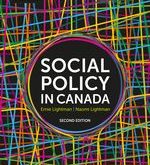I’ve noted before I have a bit of an interest in Baltimore because my wife originates from there (despite having convinced herself that she’s from the Los Angeles area). So I noticed this story: An alarming discovery coming out of City Schools. Project Baltimore analyzed 2017 state testing data and found one-third of High Schools in Baltimore, last year, had zero students proficient in math. Contrast that with this: The Baltimore City Public School System...
Read More »Adam Jezard — Finland thinks it has designed the perfect school. This is what it looks like.
The walls are coming down in Finland’s schools – but not just the physical barriers between classrooms. Also going are divisions between subjects and age ranges, and students have more of a say over what will be learnt than children in many other countries.According to CityLab, an architecture website, the country is undergoing an ambitious national redesign of its 4,800 schools. Some 57 new schools began construction in 2015 and 44 in 2016. Others are being refurbished using open-plan...
Read More »Jonathan Vanian — Apple Co-Founder Steve Wozniak Has Created a New Online University
The Silicon Valley technologist, who helped create over 40 years ago with the late Steve Jobs, has debuted Woz U, an online university. He plans to eventually open physical campuses in over 30 cities in the U.S. and other unspecified countries. The institute, with a corporate headquarters in Scottsdale, Ariz., offers online courses that are intended to train people in computer science and related fields and help them land jobs in the technology industry. Woz U is part of the private,...
Read More »Eli Meixler — Tim Cook Says Learning How to Code is More Important than English as a Second Language
Last month, the Apple exec told Fortune about how the company developed the programming language Swift to encourage students of all ages to learn to code. “All this curriculum stuff is free. Anybody can have it that wants it around the world. We've done it in multiple languages,” he said. FortuneTim Cook Says Learning How to Code is More Important than English as a Second LanguageEli Meixler
Read More »IPA’s weekly links
Guest post by Jeff Mosenkis of Innovations for Poverty Action. Madina Nalwanga as chess champion Phiona Mutesi in the film Queen of Katwe.Photo: Edward Echwalu/Disney Recognizing that an increasing amount of development policy is being done in developing countries, the prominent British NGO Oxfam is moving its headquarters from the UK to Nairobi. There’s some evidence that being exposed to relatable role models can improve performance in school or at work. A newly-published RCT...
Read More »IPA’s weekly links
Guest post by Jeff Mosenkis of Innovations for Poverty Action. Madina Nalwanga as chess champion Phiona Mutesi in the film Queen of Katwe.Photo: Edward Echwalu/Disney Recognizing that an increasing amount of development policy is being done in developing countries, the prominent British NGO Oxfam is moving its headquarters from the UK to Nairobi. There’s some evidence that being exposed to relatable role models can improve performance in school or at work. A newly-published RCT compared the...
Read More »IPA’s weekly links
Guest post by Jeff Mosenkis of Innovations for Poverty Action. Madina Nalwanga as chess champion Phiona Mutesi in the film Queen of Katwe.Photo: Edward Echwalu/Disney Recognizing that an increasing amount of development policy is being done in developing countries, the prominent British NGO Oxfam is moving its headquarters from the UK to Nairobi. There’s some evidence that being exposed to relatable role models can improve performance in school or at work. A newly-published RCT compared the...
Read More »Education
Every child begins their journey through life with an incredible potential: a creative mindset that approaches the world with curiosity, with questions, and with a desire to learn about the world and themselves through play.However, this mindset is often eroded or even erased by conventional educational practices when young children enter school.The Torrance Test of Creative Thinking is often cited as an example of how children’s divergent thinking diminishes over time. 98% of children in...
Read More »Book review: Social policy in Canada (2nd edition)
Oxford University Press has recently released the second edition of Social Policy in Canada, co-authored by the father-daughter duo of Ernie Lightman and Naomi Lightman. I recommend this book as an excellent resource for students of social policy. It will be useful for classroom instruction, while also being a handy reference for researchers, persons who design and administer social policy, and persons who advocate for improved social policy. Here are 10 things to know: 1. The book does an...
Read More »Matias Vernengo — ‘Edupreneurs,’ Corporate Universities and Pluralism in Economics
I posted recently on the increasing influence of corporate money in academia, specifically the new Marriner Eccles center funded by the Koch brothers at the University of Utah. The piece by David V. Johnson in the Baffler on this subject is worth reading. As he notes, the new breed of private money goes beyond what they used to do in the past, trying to directly influence what kind of research, the curriculum and what ideas should be disseminated, and, indirectly who should be hired and...
Read More » Heterodox
Heterodox

